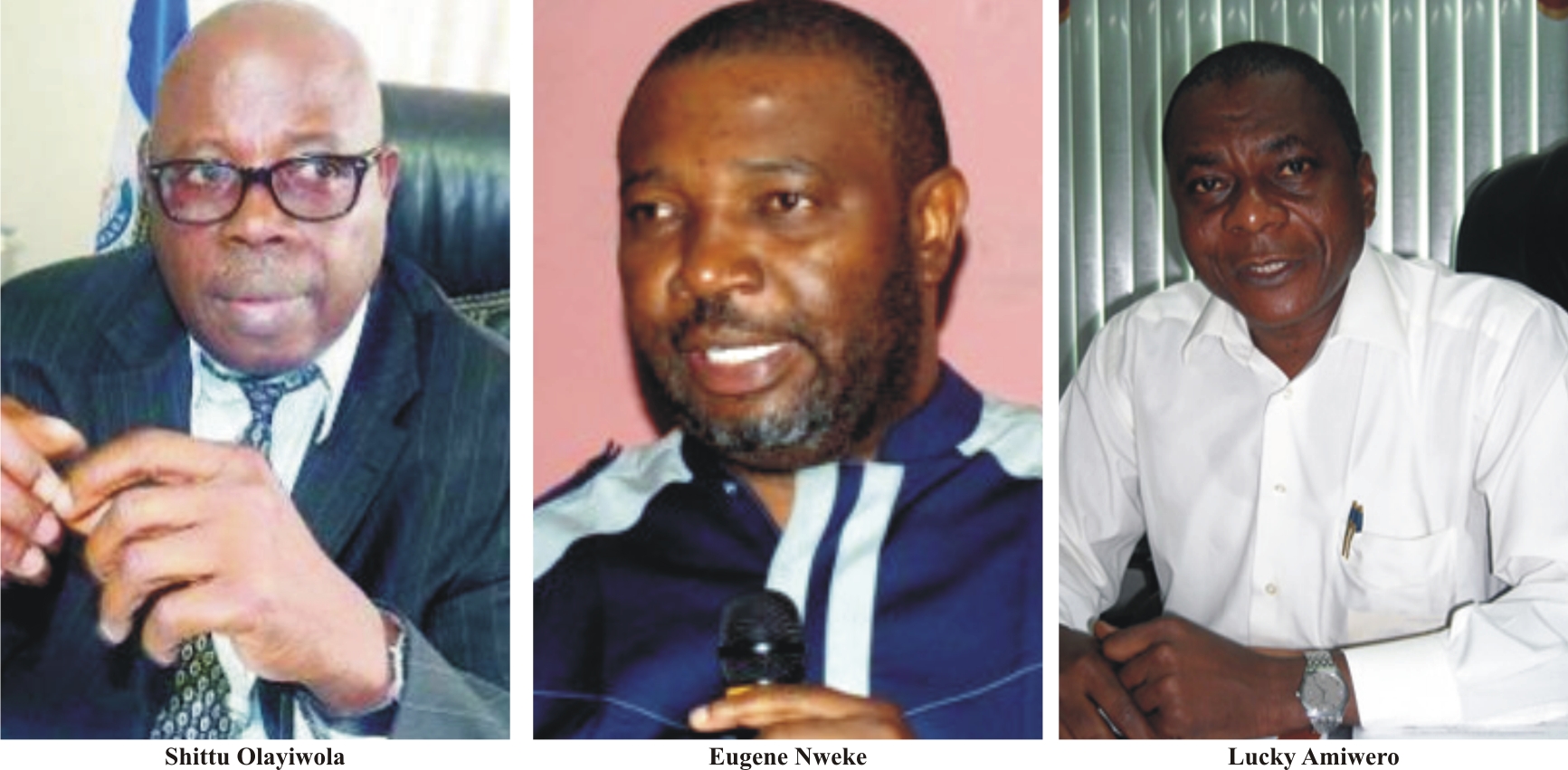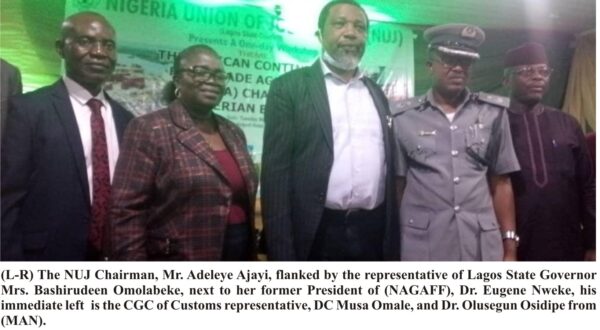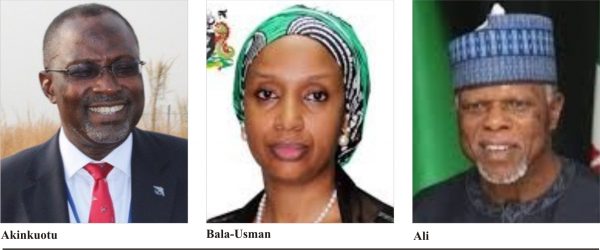PERISCOPE
Dangling Fortunes Of Nigeria’s Non-Oil Export Profile
Nigeria, Africa’s largest economy, is lagging behind its peers on the continent as it struggles to ramp up exports.
Its total exports as a percentage of Gross Domestic Product in 2021 was 26 percent, the highest since 2011 when it was 32 percent. As of 2021, the country’s GDP stood at $440.7 billion, according to World Bank data.
However, some other African countries, although with smaller GDPs, such as Morocco, Angola, and Ghana, except South Africa, the second biggest economy on the continent, have been able to boost the contribution of exports to their GDP.
South Africa, with a GDP of $420 billion, has its exports at 31.1 percent, while Morocco, with a GDP of $132.7 billion, has its exports at 37.3. Ghana and Angola with smaller economies of $77.6 billion and $72.6 billion have their exports at 30 percent and 37.9 percent, respectively, according to the World Bank.
Exports are incredibly important to modern economies because they offer people and firms many more markets for their goods. One of the core functions of diplomacy and foreign policy between governments is to foster economic trade, encouraging exports and imports for the benefit of all trading parties.
Therefore the importance of export to the economy cannot be overemphasized.
Exports play an important role in the life of any economy, because it has the capacity to influence the level of economic growth, employment generation and the balance of payments.
Lower transport costs, globalisation, economies of scale and reduced tariff barriers have all helped exports become a bigger share of national income.
It is evident that our export sector is still extremely weak when juxtaposed with other economies of the world.
According to National Bureau of Statistics,the total trade in 2021 was N39.8 trillion, up 57.6 from N25.2 trillion in 2020. Exports rose by 43.8 percent to N18 trillion in 2021, less than imports, which were N19.5 trillion in 2021, up 70 percent from N11.5 trillion in the previous year.
This shows that Nigeria recorded a trade deficit of N1.9 trillion in 2021. However, in the first quarter of 2022, Nigeria recorded a trade surplus of N1.2 trillion as exports totalled N7.1 trillion while imports totalled N5.9 trillion.
It is against this background that it became a relief when the Managing Director of the Nigerian Ports Authority (NPA), Mr.Mohammed Bello- Koko,commissioned the Diamond Star Export Processing Terminal in Lagos, recently.
While commissioning the export terminal, Bello-Koko had explained that the commissioning of the Diamond Star Export Processing Terminal as a pre-gate for processing all export bound containers entering Lagos ports is a demonstration of the premium the agency places on the speedy and prioritized handling of export cargoes in its bid to make Nigerian exports competitive in the global marketplace.
According to Bello-Koko, “This initiative signposts the NPAs’ commitment to the implementation of the National Action Plan on Agro-Export and the Federal Government of Nigeria desire to diversify the national economy from oil export to non-oil exports.
Going further, the NPA boss stated that “The Authority is by this move positioning to infuse greater efficiency into the logistics surrounding the entry of export boxes into the ports and the eventual loading on sea-going vessels.
“The launch of this and other terminals also strategically positions Nigeria to optimize the advantages of the benefits inherent in the African Continental Free Trade Area (AFCFTA) Agreement”.He said.
Overtime ,oil export has gained much priority attention at the expense of the non oil export.This situation has become worrisome and unfashionable,given the present global economic challenges, occasioned partly by Russia- Ukraine war and post-pandemic effect of Covid – 19 ,which greatly ravaged and traumatized the world both economically and emotionally.
It is globally accepted that the main stay of any economy in the present dispensation is export.Any country that is not exporting ,experts say is gradually winding down.
Speaking to MMS Plus, Director General,African Center For Supply Chain ,and President , Association of Outsourcing Professionals (AOPN),Dr.Obiora Madu,noted that the commissioning of the export terminal is a step in the right direction .
Dr Madu stated that the government has made a bold move to sign post its readiness to diversify the economy through this move.
He however noted that a lot still needs to be done by creating awareness and publicizing the place.
“The last time I went there, it was still under construction but one thing I told them, they really have to speak, to publicize it, because right now I don’t know how many exporters that are aware. They have to reach out to exporters association, chambers, media, and commodity associations. So we need to reach out extensively because it is a good thing that you have a terminal where all they would be doing is export. It’s a very good development pointing out government interest in non oil export. It’s left for the information to go down to the people who need it and then for them to find it useful.The essence of creating that is to make life easier for exporters” he said
He noted that the terminal already has the full complement of a full Comptroller.
He stressed the importance of the need to encourage exporters with moderate charges
He stated that with the commissioning of the new export terminal the burden of warehouse which often results in delays and losses would be a thing of the past.
“What it means now is that if you ,for example move ginger or anything from either north or east , you don’t need to go to warehouse in Lagos to go and do things, but you move into the terminal,” he said.
He however expressed fear of making the whole thing work.
“It’s a good move; my prayer is that it works because most of the things around here don’t work,” he stated.
Dr Madu argued that the issue of Warehouse constraints which causes delay and losses would be addressed by creation of more export terminals. “Yes, it is expected that the new export terminal and the subsequent ones would addressed that issue, I don’t know how many customers it can take now, how many containers it can take at a time but it’s the right step in the right direction. I think they are planning to commission 9 to 6. This is the first one, so they are progressing, we would be seeing the improvements so they can hasten up others and commission them. Some of those ware housing issues would be a thing of the past when you can get closer to the port and tidy up whatever is remaining,” he submitted.
He argued that if the new terminal is improved upon it can be a veritable means of achieving the objectives of African Continental Free Trade Agreement (AfCFTA)
“Yes, if we improve the new terminal it can open room for export, automatically,it follows, that AfCFTA would be accepted,” he said, adding that “These things would happen over time, it would not be automatic. The AfCFTA Secretary General has said that, everything would kick off at the same time. I think Egypt is working on the continental high way to probably reach South Africa .That would be a major one, which they can take into West Africa, East Africa. I am sure more of this would be coming from different governments and regional organizations like ECOWAS and the rest of them”.
Dr Madu argued further that infrastructure remains the bane of export produce in Nigeria.stressing that government needs to do more in the provision of infrastructure such as warehouse, electricity, etc.
“The fact is that we have a warehousing issue in Nigeria. There is no policy, no licensed warehouse, “he said.
Dr Madu noted that currently Nigeria is faced with foreign exchange issues arising from high exchange rate of the Naira to dollar and urged the Nigeria Customs Service to eschew the habit of stopping containers that have been sealed by customs on a particular export terminal.
His words:”For example, there is a new import export terminal in Dala,Kano State.So if any container is sealed by customs in Kano , when it gets to this export terminal, nobody is going to open it . So you can see how it would fast track transaction, because customs would do nothing on it because customs has sealed it . This is for containers that are ready.I think that there is also an inland terminal in Kaduna, I think they are planning more inland terminal. I think that should help.”
He added that “My request is that they should be more export- friendly because they are not paying duties on it like import. They should pay more attention on export than import because we have an issue in the foreign exchange”
Also speaking,the Executive Secretary/ CEO,Institute of Export Operations and Managerial (IEOM),Mr Ofon Udofia,agreed with the Dr Madu that the move by government to diversify the economy from oil export to non oil export is a welcome development ,but warned against excessive charges.
“I know what export terminal does, and if they do it well, the tariff will not be too high because I discovered that there’s no special attention given to export even though we make a lot of noise about it. When it gets to tariff it becomes a problem. But it’s a good development in order to encourage export and if they can give it the needed attention, unlike before, because if you go to the oil sector, the oil sector is structured,” he said.
He argued that in the past export was not given attention and therefore agrees with Dr.Madu Obiora that the nation needs export more than ever before to wriggle out of the current economic quagmire.
His words” Export should be given the same attention at least, just the same way that import is being given because that is the only thing that can get us out of this trouble. Today, dollar is at eight hundred and something. So export is the only thing that can help us get out of this mess and I believe we just give it attention with all sincerity both from the government perspective,from the CBN perspective and also individuals too.”
Udofia also agreed with Dr Madu over the need to create awareness because a lot of people particularly those who need the terminal have no idea that this terminal has been commissioned.
He suggested that the terminal operator should also use every channel of information to create awareness of the export terminal ,because according to him,” if you have a terminal that’s not being used, it’s a waste”.
Udofia opined that the new export processing terminal will obviously ameliorate the space challenges faced by exporters in Nigeria.
” Yes, because it will create space for export cargo to be handled and reduce delay” he said.
He however expressed concerns that because it is a private terminal and because of no adequate awareness created regarding its commissioning or existence ,they might be forced due to low patronage and the need to pay tax to the government ,begin to accept import containers.
“But my fear is also that they didn’t market it for people to know and they are paying taxes, they might be forced to accept empty containers of import,” he said.
In his reaction,the Acting National Executive Director,Charttered Institute of Logistics and Transport,Mr.Paul Okey Ndibe agreed with both Dr.Madu and Mr.Udofia on the need for infrastructure to deepen the non oil export.
Ndibe argued that the issue of infrastructure like electricity should be provided by the terminal operators for effective running of the terminal , stressing that they should not wait for the national grid, they should make provision for their terminal.
“I think we can narrow down these concerns . We have two things that would relate to port activities. It is expected that each terminal or port is narrowed down. What I mean by narrow down is like a sub-sector on its own. So if it is the issue of electricity, It is expected that the terminal or the port might be able to provide that and not depend entirely on the national grid for the purposes of series or levels of services they offer. That’s on one point. On the other point, knowing that majority of the ports have now been concessioned as terminals, the fact remains that except there is a change to the concession agreement the said terminals would have to install certain levels of infrastructure to enable them function effectively. If not, the onus is still on the government to make sure that there are adequate infrastructural facilities that will enable the terminal or port to perform effectively, if the ports were under government control like it used to be . it’s a more straight forward thing but with the increasing alteration or attraction to privatization and concessioning in which case these ports have been concesssioned at an agreed fee being paid to the government for the private investor to operate,” he said.
He noted that global economic trends currently is export,adding that,”Any country that is not exporting is gradually winding down”
He argued that export has become the game changer as far as global and nations’ economies are concerned.
“So what is the game changer? Game changer is to profile areas where you have greater economies, and where you have greater strength and you are able to engage in that more aggressively. We cannot compete with European countries in terms of technology and industrial equipment but we can compete with other African countries in terms of semi-processed commodities and then agricultural products,” he said.
He noted that “We do not have farm settlements that can produce these agricultural products in the form and size that we can compete with other African countries? Look at cocoa, Nigeria is not the leading country in cocoa but we have vast areas of land that can produce cocoa. The one we are exporting, in what form are we exporting? Is it cocoa bean or semi-processed? In what form? So if you export the cocoa bean you are thinking of large space that you pay but if it is semi processed, then the space you will pay is a bit reduced, then you have greater economy. Nigeria has not been able to pigeon -hole its key areas, may be because of oil. We are lagging behind in the other agricultural sector output that can give us the necessary leverage .Look at AfCFTA, how far have we fared? At least that one is within Africa.We can compete with other African countries? How far have we done that?” He wondered.
He added that,” Rice that we produce must it only be rice grain or rice flour? It can get into other forms of rice that might be attractive to other counties, but we need to process them. Do we have such processing plant? These are the areas the government can come in and then lead, then the private sector can then take over”
Now that the government has demonstrated the resolve and willingness to pay more attention to non oil export ,they should also ensure that the necessary tools required to optimize the potentials of the sector is adequately provided
Additional export terminals should be commissioned to allow seamless export operations. And barriers that could stifle the process removed. Exports ,particularly non oil export is what Nigeria needs to get out of the economic woods it is currently in.






